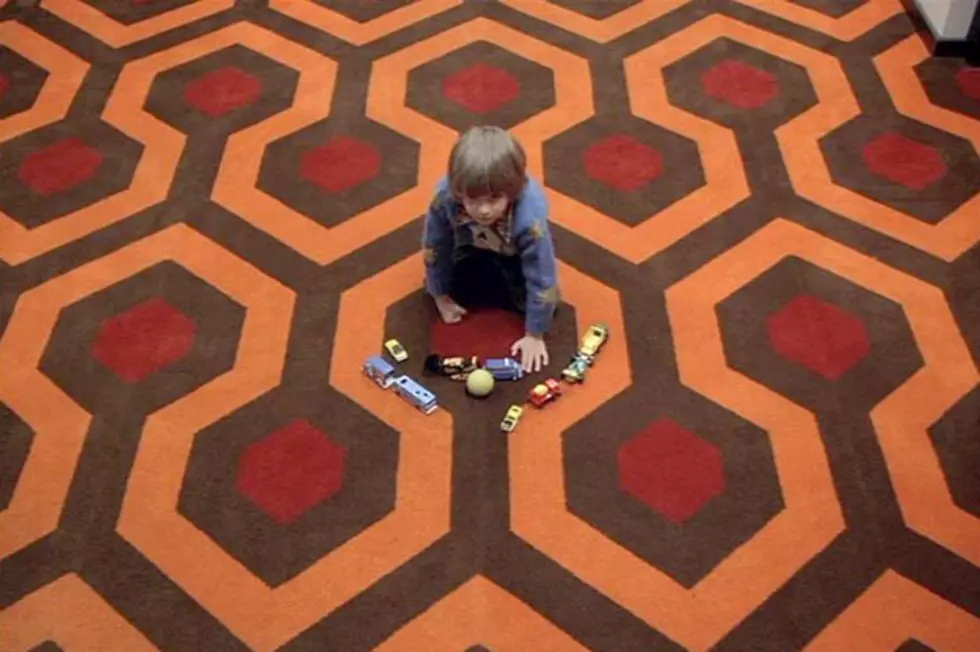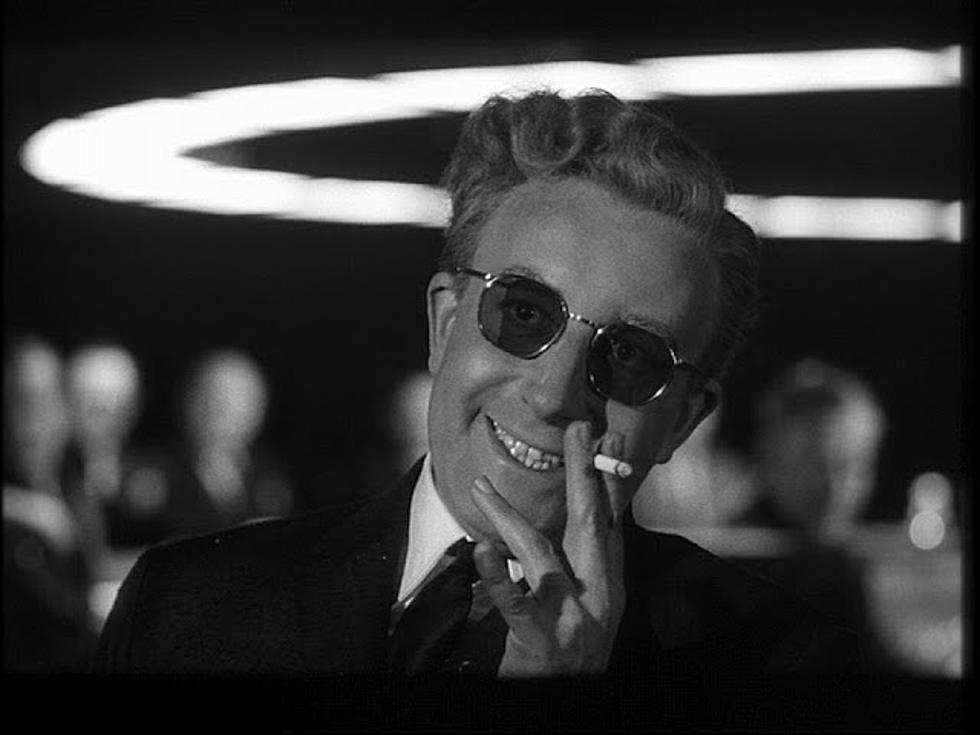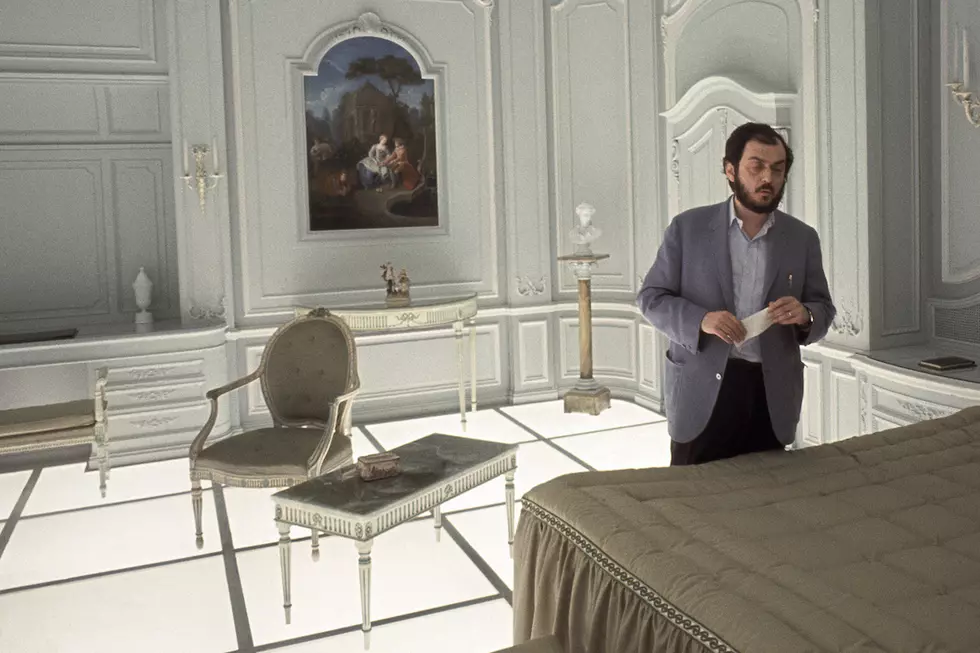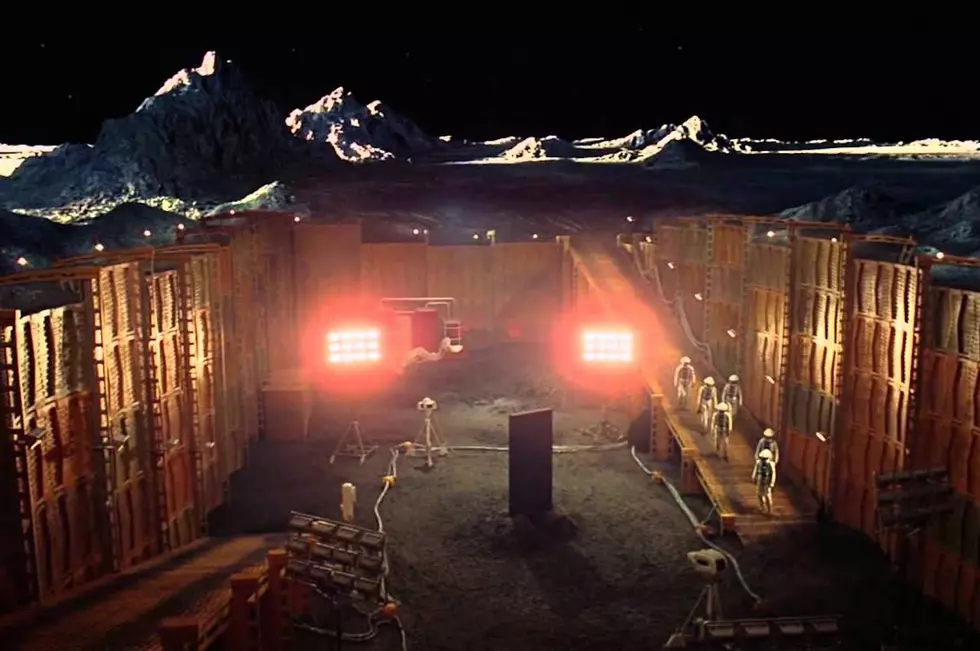
‘Room 237′ Review
[Editor's Note: The following review contains spoilers for 'The Shining.' I assume if you're curious about a documentary about 'The Shining,' you've already seen 'The Shining.' If I'm wrong, sue me.]
The Overlook Hotel does something to people. In Stanley Kubrick's 'The Shining,' it drives caretaker Jack Torrance (Jack Nicholson) mad -- turning his writer's block into full-fledged, kill-your-family insanity. In Rodney Ascher's 'Room 237,' six different critics, historians and fans of Kubrick's horror classic share their own theories about -- and obsessions with -- 'The Shining.' All tell much the same story: they saw the movie once. They couldn't get it out of their minds. They watched it again and again. They couldn't stop. They developed elaborate theories to explain the film's mysteries and to uncover its hidden meanings. They were trapped in the Overlook, lost in its hedge maze, searching for some elusive truth. They still can't get out.
This is an unusual documentary. There are no shots of the movie's talking heads. No one else appears, on or off camera, to debate or refute their theories. Stephen King's source material is barely mentioned. There is no larger production history about 'The Shining' or Kubrick. There is just these interpretations of the movie, and the movie itself, which, along with an assortment of stock footage from the history of cinema (including quite a few more Kubrick films) represent the totality of the movie's images. The effect is somewhere between an essay film, a supercut and a DVD audio commentary track.
Once the speakers are introduced once via title card, they are never identified by name again, and their testimonies begin to swirl together. Ideas rush at us like blood pouring from an elevator. One man describes the movie as a treatise on the genocide of the American Indian -- citing evidence as disparate as a can of Calumet Baking Powder (with an image of a Native American on the side) and the tagline of the film's European poster ("The wave of terror which swept across America is here!").
Another believes the movie is an investigation into the buried horrors of the Holocaust. Others are less coherently singular, but they expose more strange quirks of the movie: the way the Overlook's architecture, when viewed as an architectural blueprint, is totally impossible; how its geometrically intricate carpet shifts in shape from shot to shot.
A more literal-minded critic might take this as evidence of a director with a poor grasp of continuity. But Stanley Kubrick made 'The Shining' and Kubrick was one of the greatest and most notoriously hands-on directors of all time. If Kubrick did it, it must be there for a reason. But what's the reason?
The theories of 'Room 237' are totally contradictory, but oddly compatible. All the overlapping voices suggest that there is never any one reason for anything in a film, or if there is (at least in the director's eyes), it inevitably becomes secondary to the ones provided by the audience. As a result, 'Room 237' is ultimately more about the interpretation of all movies than just the interpretation of 'The Shining.' As you listen to someone describe a scene that reveals the "proof" that Kubrick made 'The Shining' as an apology for his involvement in the staging of the Apollo 11 moon landing (just look at Danny's sweater!), or discuss how playing the film backwards and forwards simultaneously reveals strange coincidences and perhaps alternate revelations, you realize how little a director controls the reception of their movies. The audience always becomes a work of art's ultimate author. Or at least that's my interpretation.
'Room 237' is now available on VOD and iTunes and is currently playing in select theaters.
Matt Singer is a Webby award winning writer and podcaster. He currently runs the Criticwire blog on Indiewire and co-hosts the Filmspotting: Streaming Video Unit podcast. His criticism has appeared in the pages of The Village Voice and Time Out New York and on ‘Ebert Presents at the Movies.’ He lives in Brooklyn with his wife, dog, and a prop sword from the movie ‘Gymkata.’
More From ScreenCrush









